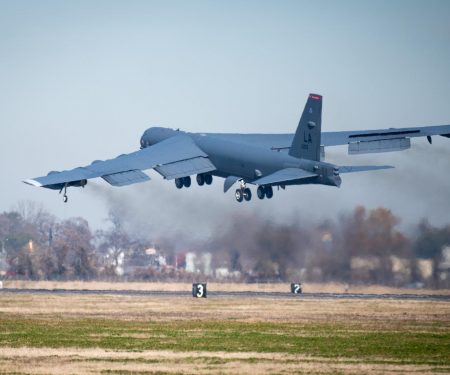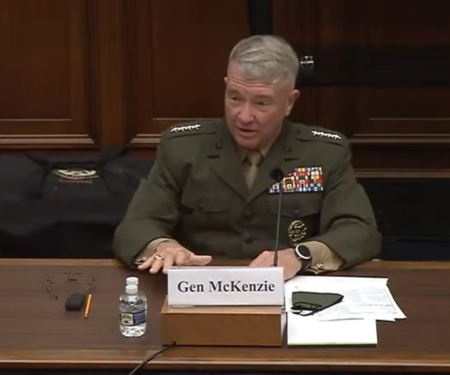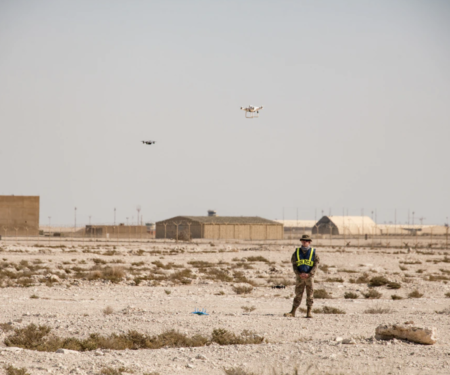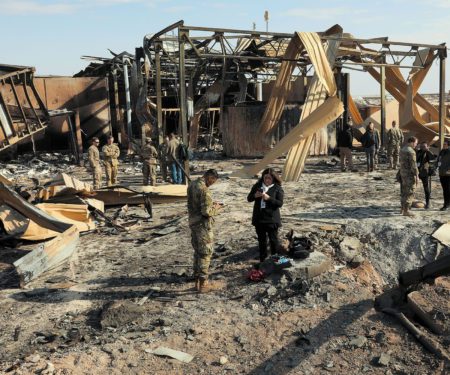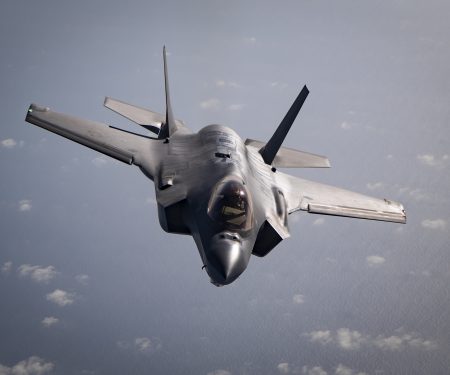Radar Sweep
DARPA Nuke Sat to Target Cislunar Monitoring Mission
DARPA’s effort to develop nuclear ‘engines’ for far-roving satellites also hopes to demonstrate the capability to keep “timely” tabs on spacecraft operating near the Moon, says program manager Maj. Nathan Greiner.
Repeated National Guard Missions in DC Trigger Frustration, Denials
Three months after more than 25,000 National Guard troops poured into the nation’s capital to secure President Joe Biden’s inauguration, Defense Department and Guard officials are losing patience and are denying some of the city’s recurring requests for troops to protect D.C.
APORA Strengthens Rapid Response Capabilities Through Partnership, Communication
The African Partner Outbreak Response Alliance concluded its tenth annual conference, focusing on global Rapid Response Teams April 13.
Boeing’s Air Force One Contractor Battle – What’s Happening?
A run-of-the-mill dispute between a manufacturer and a supplier doesn’t normally make the news. But when the dispute involves future Air Force One aircraft, people sit up and pay attention.
The USAF’s Bad Bets on Pilot Retention Show It Needs Outside Help
Service leaders think the same old tactics can reverse a pilot shortage in a resurging economy.
Vaccine Eligibility Open at US Bases in Europe, but Appointments Scarce for Some
U.S. military bases in Europe adhered to a White House pledge to open coronavirus vaccinations to every American eligible for them by Monday, but appointments for a first dose remained unavailable in some areas.
Gen. Charles Q. Brown Jr., America’s First Black Air Force Chief, on Race, Tech, and the Trouble with AI
General Charles Q. Brown Jr. became the first Black chief of staff of the Air Force during a perilous moment for the United States. In the time between Brown’s nomination and his unanimous confirmation by the Senate, George Floyd died under the knee of officer Derek Chauvin on the street in Minneapolis. While angry protests and a national reckoning over race unfolded around the country.
Hill AFB Officials Hope New, Advanced Training will Further Fighter Wings' F-35 Skills
Hill Air Force Base’s 388th and 419th fighter wings make up the Air Force’s first, and for now, only combat-capable F-35 unit.
Senators Seek to Boost Military Spending on Quantum Computing
U.S. Sens. Maggie Hassan, D-N.H., and John Thune, R-S.D., have sponsored legislation that would direct funding to the Pentagon to further development of quantum computers.
German Defense Minister Vows to Keep Fighting for Armed Drones
German Defence Minister Annegret Kramp-Karrenbauer said she will continue to push for armed drones in the military, after lawmakers this week insisted on keeping the Franco-German Eurodrone weaponless for now.
How Will the DOD’s Next Multibillion Dollar IT Contract Fare after Messy JEDI deal?
Consider these two quotes about two contracts the Department of Defense says are key to modernizing networks and advancing its computing power: “The war fighter is absolutely waiting for this.” “It is one of the crown jewels that we have as part of our IT reform.”
OPINION: Space Force Reserve Too Important to be Dictated by Active Duty
Recently the commander of the Space Force’s Space Operations Command visited members of the Air Force Reserve’s 310th Space Wing, the bulk of America’s 1,600 space reservists, to discuss the Space Force.
Air Force Firefighter of the Year, Based in Japan, is Heading for Her Next Challenge
A firefighter at Misawa Air Base is the 2020 Military Firefighter of Year for the Air Force and will compete for the overall Department of Defense title, according to the 35th Fighter Wing at Misawa.
Managing the Military Problem of Space: The Case of India
How are the great powers of the Indo-Pacific managing the military problem of space? In 2020 the United States stood up the U.S. Space Force, an independent service dedicated to the military aspects of space.
Japan’s First Global Hawk Begins Flying at Northrop’s California Drone Hub
The first Northrop-Grumman RQ-4B Global Hawk unmanned aircraft destined for Japan took its maiden flight in the United States last week, as the Asian country ramps up its intelligence gathering capability to monitor North Korean and Chinese military activities.
Crew-2 Astronauts Head to Space Station to Conduct Microgravity Science
NASA’s SpaceX Crew-2 mission is set to launch four astronauts to the International Space Station aboard a SpaceX Crew Dragon on Earth Day, April 22.
WWII-era Plane Makes Emergency Landing Near Florida Beach
A World War II-era plane was forced to land off the coast of Cocoa Beach, Florida, Saturday afternoon after it experienced engine failure.
